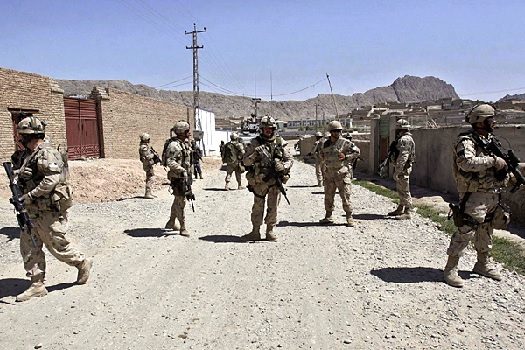By Alicia Shepard
Just before going to bed Monday night, Samim Hakim read on social media that a huge truck bomb had exploded in Kabul, the city he left only weeks ago. In a panic, he got on Viber to text his family back home. For 45 tense minutes, he waited in Sacramento to learn his sister’s fate in the attack that killed at least 28 people and seriously injured more than 300. His sister lives near the Afghan security headquarters for VIPs where the explosion detonated during Tuesday morning’s rush hour. She was safe.
It’s springtime in Kabul. Samim wasn’t surprised there was an explosion. Springtime means the kickoff of the Taliban’s fighting season. Attacks are expected. Even so, the enormity of this one rattled him. “I’m very far away and can’t get an instant response,” said Samim, who arrived last month on an immigrant visa to make America his home. “It’s hard for me to wait. At first, I thought it was just another explosion but when I read about the casualties and number killed, I got really worried.” “Just another explosion.” I, too, saw the news alert on my phone and initially shrugged. After two years of working in Kabul, where I met Samim, I have become (sadly, almost embarrassingly) inured to the Taliban’s violent attacks on innocent people. Explosions and suicide bombers are so common especially in Kabul that after being reassured family and friends are OK, most Afghans get right back to work, though they always take a moment to thank Allah for protecting their family and pray for those not spared.
It’s a sad commentary on what has become of Afghanistan that explosions instigated by the Taliban are ho-hum. These reactions posted Tuesday on Facebook are typical: “Same #$#*. Same enemy. Different day.” Or: “Sad, angry, grieving.” But this Kabul attack, for which the Taliban claimed credit, stands out because the numbers killed make it the deadliest since 2011. Obaidullah Tarakhail, a police commander who was close to the explosion, said it was one of the most powerful he had ever heard. For 20 minutes, he couldn’t see or hear anything, he told the Associated Press. After this lethal blast, or any attack for that matter, there’s an obvious question: Why are American troops still in Afghanistan? The U.S. has spent more than $65 billion to beef up the Afghan police and security forces. Yet Afghanistan isn’t safer. In fact, it’s getting more dangerous. With all the money America has invested, Afghan forces still aren’t able to protect their country. According to the United Nations, Taliban insurgents have spread to more parts of the country than any time since 2001, when U.S. troops first went into Afghanistan and routed the group from power. What are U.S. troops accomplishing if the Taliban is growing stronger? It would seem obvious that the 9,800 American troops still there, a fraction of the number fighting at the height of the war, should pack up and go home.
As tiny as that number seems, however, it would be devastating to the Afghan people for the Americans to leave. In October, when President Obama announced intentions for the current troop level to remain until early 2017, one could hear a collective sigh of relief from the Afghan people and from the U.S. Embassy. Obama might have reneged on his promise to end the war in Afghanistan before leaving office, but Afghans don’t care. “The U.S. being there is definitely helping,” Samim said. “If the U.S. is not there, imagine what would happen besides suicide attacks and explosions? It wouldn’t just be the Taliban and Daesh (ISIL) fighting in my country, it would also be warlords and other insurgents trying to take power. The U.S. there, at least, helps to make my country more stable.”
If the American troops were to leave, the Taliban would almost assuredly win rewinding the clock to 2001, when Afghanistan under the Taliban harbored Osama bin Laden and al-Qaeda. The only conceivable way out is to aggressively try to make peace with the Taliban. But if it were that simple, we’d be doing it. Over and over, Afghans told me they take huge comfort in having the American government, its might and financial support as their partners. The troops might not be large in number, but their presence is psychologically powerful. After spending billions and billions on security and development for 15 years, it’s too early for the Americans to leave. And it’s too late.


